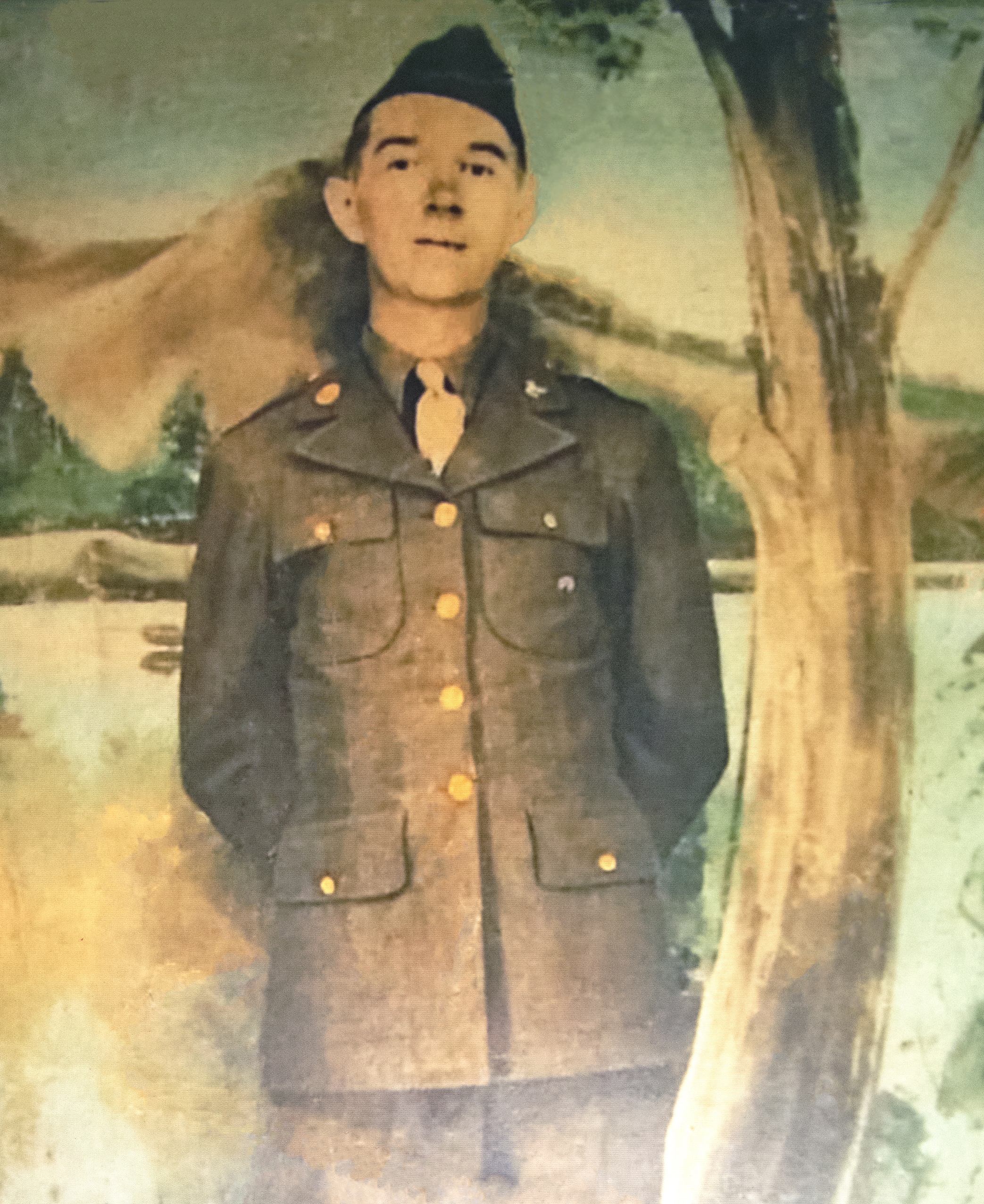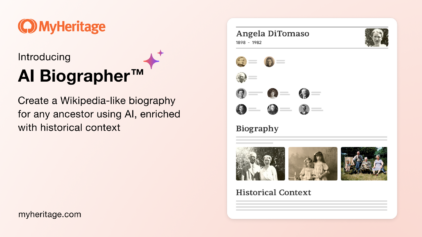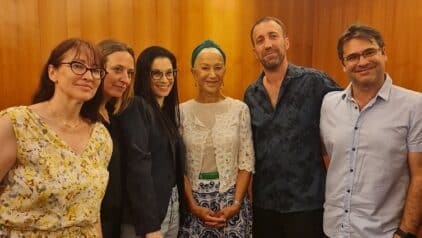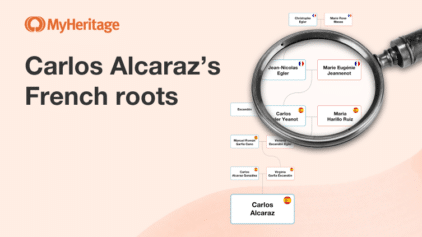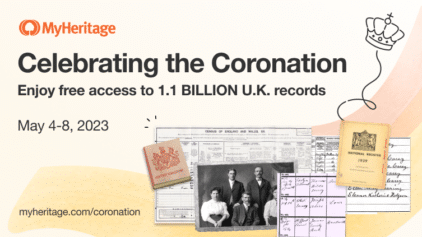I Became the First Family Member to Visit a WWII Hero’s Grave Thanks to MyHeritage
- By Esther
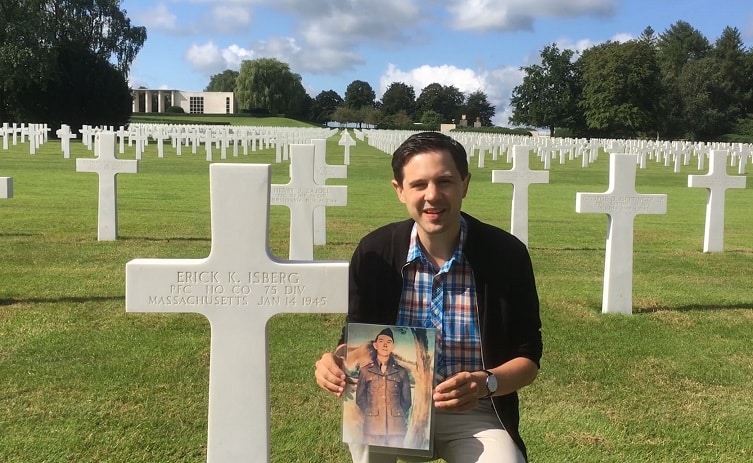

One of the many excellent reasons to join our Facebook Live sessions is the door prizes: at the beginning of every session, we ask a question, and one of the participants who answers that question in the comments wins a prize. The winning comment in our recent session with Cathy Wallace of BillionGraves was this one:
“I found out that my grandpa’s cousin was buried at an American war cemetery in Belgium and died when his headquarters was bombed by the Nazis during the Battle of the Bulge,” wrote MyHeritage user Erick Löfdahl from Sweden. “I was able to find him thanks to a function at MyHeritage which enables you to see what other people are searching for. The guy who had adopted my American relative’s grave was looking for his relatives and they did not know anything about them. So then we could connect and then I went to Belgium to honor my relative — also named Erick.”
We had to know more details about this intriguing story and asked Erick to elaborate.
Erick has been researching his family history for a while now. In fact, he attended the 2018 MyHeritage Live conference in Oslo and got this great picture with our founder and CEO, Gilad Japhet:

MyHeritage user Erick Löfdahl posing with MyHeritage founder and CEO, Gilad Japhet at MyHeritage Live in Oslo
This particular discovery came about when someone searched for Erick’s relative, Erick Isberg, and found a Search Connect™ record that led him to Erick Löfdahl.
It turned out that a man from Belgium had decided to “adopt” the grave of a WWII soldier near his home, and he had chosen the grave of Erick Isberg because his own name was Eric Dierickx. Eric D.’s friend, Herman Donker, was helping him trace Erick I.’s relatives, and he searched for Erick I. on MyHeritage. One day, when Erick L. conducted a search on Erick I., he saw a Search Connect™ record of Herman’s search for the same person. Erick L. reached out to Herman and they began to correspond. Herman had a wealth of information on Erick I.’s service that he shared with Erick L.: he was enlisted in Boston, had served in the 75th Infantry Division, and died in the Battle of the Bulge on January 14, 1945 — just 11 days before the Allies’ victory.
“It was bad luck, because it was just at the end of the battle and right after that day, the Allies took control and the Nazis directed their attention to other targets,” says Erick.
But Herman had gotten stuck trying to find relatives of Erick I.’s, because he didn’t have any descendants after the death of his son, Robert Isberg, in 1973. Sadly, Robert — who also served in the military — passed away at age 34. Erick has been unable to determine the cause of death or learn about his service because a big fire destroyed personal files from the U.S. Army in 1973.
Erick was floored that he had a relative who fought against Hitler in one of the most critical battles in history and died for that cause on the battlefield — a relative who shared his first name.
So he traveled to Belgium and visited Erick Isberg’s grave in the American War Cemetery Henri-Chapelle. Here’s a video he made during his visit:
“I am the first relative to visit Erick Isberg’s grave,” says Erick. The closest living relative of Erick I. are his two nephews and two nieces: Charles, who lives in Illinois, and Roy, Dorothy, and Ruth, who live in Massachusetts. Erick is in touch with Charles’ granddaughter Taylor, and she is hoping to visit her great-great-uncle’s grave in Belgium someday in the future. As it turns out, Erick and Taylor have a lot in common: they both play the clarinet (Erick as a hobby, and Taylor professionally) and enjoy classical music. When Erick sent her the family research he’d gathered, he included some clarinet sheet music he thought she’d like to try.
Erick has also uncovered some details about Erick Isberg’s wife, Hilda. She was born in Nova Scotia, Canada, and her story is tragic as well: she died shortly after her son in 1973, apparently heartbroken over the loss. “She never got a headstone,” Erick explains, “so the lot where Hilda Isberg was buried outside Boston is just one part of the cemetery that does not have any inscriptions. I am learning how to find the Canadian records for recent periods. So far, I have been researching Hilda’s forebears, who were Scotch. She is noted as being Canadian-Scotch in American records.”
“One reason I became interested is due to my research in Canada on Swedish settlers in Alberta,” says Erick. “At the museum in Wetaskiwin, there was an incredibly special event during Remembrance Day honoring veterans. Swedes do not have that tradition since we never participated in any of the wars. Kids of Swedish immigrants in the U.S. or Canada who fought in the war therefore have a vastly different story, which would be unknown in Sweden.” Erick has shared the story with people in his family, and the American side showed interest. It even turned out that Erick Isberg’s sister has a grandchild who kept the Purple Heart Erick I. had been awarded.
Erick believes visiting the cemetery in Belgium would be a very emotional experience for this branch of the family. “It is the most special cemetery I have seen,” he says, “very well kept, and there is really a unique air of respect and a special feeling which is hard to explain. Yet to Americans or Canadians, I think that feeling would be even stronger.”
“If I can get my American relatives and the Canadian relatives of the wife — Hilda Chisholm, born on Cape Breton Island — to go to Belgium, that would be truly special,” says Erick. “I believe both the Bostoners and the Cape Bretoners would consider it an unforgettable moment.”
Build your family tree on MyHeritage today — who knows what you might discover?
